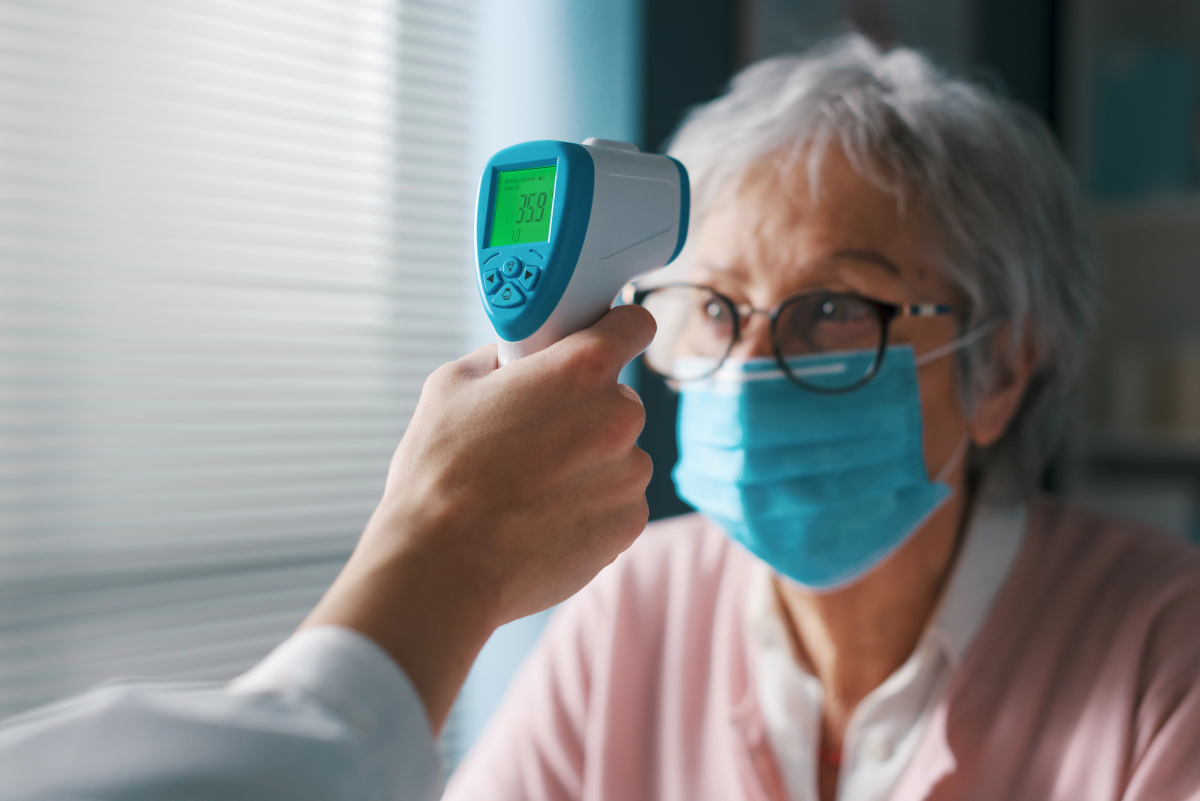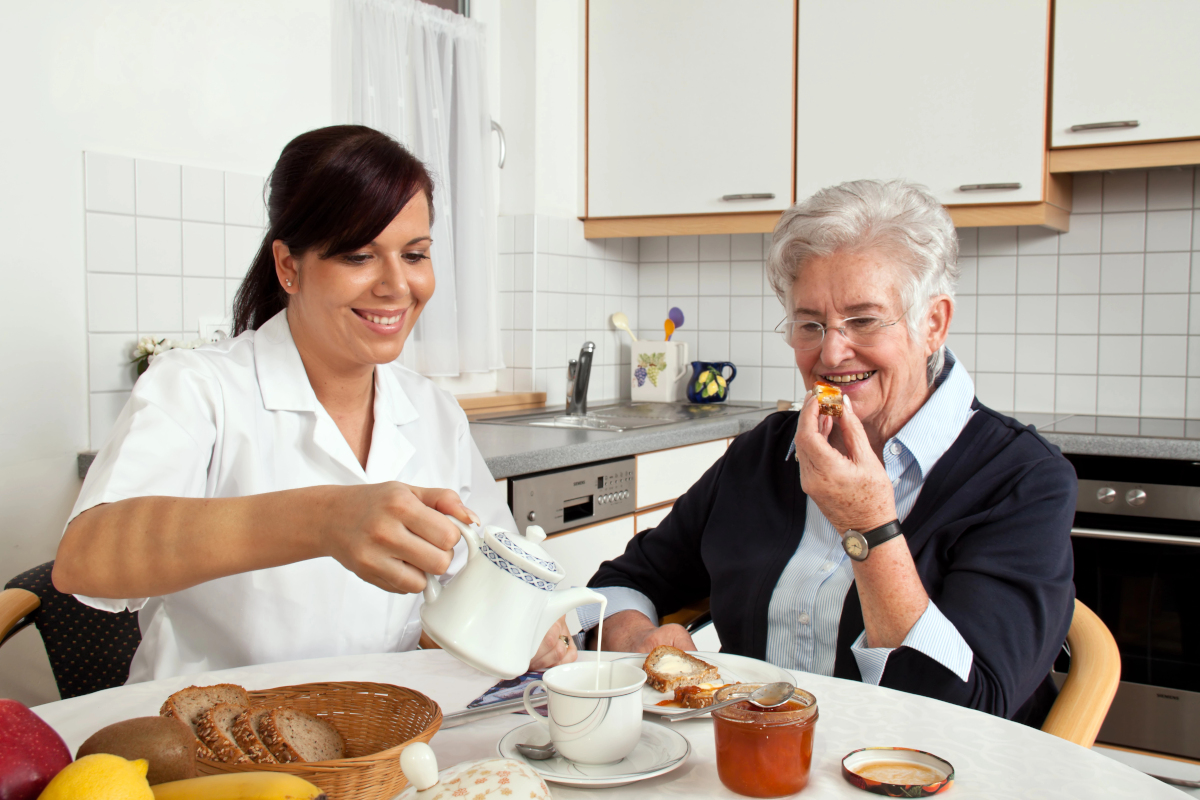Everyone gets sick sometimes. For a younger person, this is an unpleasant experience that usually resolves on its own with home care. As we age, illnesses like the flu become far more concerning.
The severity of flu among older adults varies each year. The United States saw between 130,368 and 468,051 flu hospitalizations of patients over age 65 between 2022 and 2023.
Every older adult can take steps to reduce that number this year by taking steps to protect themselves from infection. Learning how to keep your lungs healthy into your senior years is a good first step.
What is the Flu and Why is it Dangerous for Senior Citizens?
The flu refers to influenza, which is a viral infection in the respiratory system. It’s highly contagious and causes symptoms that include:
- Fever
- Cough
- Sore throat
- Nasal congestion
- Body aches
- Headache
- Chills
- Fatigue
- Shortness of breath
These symptoms apply to influenza A, B, C, and D. This is different than the stomach flu, or viral gastroenteritis. The stomach version is caused by viruses like rotavirus or norovirus or bacteria like E. coli and salmonella.
Stomach flu symptoms focus on the digestive system and include vomiting, nausea, and diarrhea.
Our bodies tend to take longer to heal as we age. A senior with influenza will likely require more time to recover than someone in a younger age group. Seniors also tend to have longer hospital stays and a higher risk of complications.
The Centers for Disease Control and Prevention (CDC) reported that between 70% and 85% of seasonal flu-related deaths occur in adults over age 65. This age group also saw between 50% and 70% of seasonal flu-related hospitalizations.
Prevention is the best approach to keep yourself safe from the dangers of influenza. Pinnacle Peak Assisted Living Home takes health and safety very seriously. We welcome residents to talk to staff about concerns or to learn more about how we promote a healthy environment in our community.
What Can Seniors Do to Avoid Catching the Flu?
Prevention starts with the choices we make every day. Forming good habits will help us prevent an infection before it begins. What can you do now to reduce your risk of influenza?
- Avoid Contact with Infected People
If you know that someone is sick, avoid contact with them until they have a chance to fully recover. We saw the importance of this during the COVID-19 pandemic.
The flu is very contagious. It easily spreads from one person to the next through respiratory droplets that are released when we sneeze, cough, or talk. It’s possible to be around someone and not notice that these droplets have been expelled.
Someone with the flu is usually the most contagious during the first three days of illness, but this period can last over a week. It’s best to wait until at least 24 hours after fever has subsided without the help of medications before being around others.
- Eat Nutrient-Rich Foods and Lean Proteins
A healthy lifestyle is another way to prevent the flu. The stronger your immune system is, the better equipped it will be to fight off infection.
Eating a nutrient-rich diet and lean proteins will give your body what it needs to fight illness. These types of foods contain protein and vitamin C which are essential for your immune system. Protein is needed to build antibodies that ward off viruses while vitamin C is a natural immune booster.
- Stay Well Hydrated Every Day
Hydration is needed to allow our bodies to perform as they should. A body that’s working optimally will be stronger and better able to prevent an infection.
Bodily fluids are required to transport immune cells through the body. It is also used to keep mucous membranes moist. These membranes prevent inhaled viruses from entering the body.
- Talk to Your Doctor About the Flu Shot
A flu shot can protect you from a serious infection. While it may not completely prevent illness, it can mean the difference between feeling a little under the weather and a lengthy hospitalization.
Most senior citizens are advised by their doctors to get a flu shot. There are very few situations where this may not be recommended, including if the patient has a severe illness already, a history of Guillain-Barré syndrome in the past six weeks, or a severe allergy to a vaccine ingredient.
The best course of action is to talk to your doctor and follow their recommendations.
- Cover Coughs with a Tissue or Elbow
Always cover your mouth when you cough. This will prevent you from passing a virus to someone else.
We often use our hands to cover a cough. This is not recommended because we also use our hands to eat and touch things throughout the day. The safer alternative is to use a tissue or cough into your elbow instead.
- Avoid Touching Your Face
Avoid touching your face. Even if you don’t think anyone in the area is ill, you never know what pathogens are on a surface that you touched. These pathogens can be picked up on hands and enter the body through the mouth, nose, or eyes.
We can’t see, smell, or feel a virus when it’s on our skin. It is best to assume that something may be there. Not touching your face denies the virus an easy way into your body.
- Wash Hands Thoroughly as Needed
Frequent hand washing can protect you from an infection. Thoroughly washing your hands removes the virus particles, so they cannot get into your body.
Spend at least 20 seconds vigorously scrubbing hands with warm water and soap. Make sure you get all parts of the hands, including between fingers. Dry hands with a clean paper towel when you’re finished.
Wet hands spread germs more easily, so keep them dry after each wash.
- Disinfect Surfaces or Talk to Staff About Disinfection
Any frequently touched surfaces should be disinfected. Seniors in assisted living will have staff who can clean up their living space and communal areas.
Talk to staff to discuss concerns about disinfection. If you know that a surface was touched by someone who is or may be sick, let staff know so they can disinfect it. You can also ask about cleaning schedules and procedures to learn more about how your assisted living community protects residents from infection.
- Open Windows or use a HEPA Filter
Opening a window improves the air quality in a home. Doing so allows the stale air inside to exit and fresh air from outside to enter. This exchange of air dilutes pollutants and reduces moisture.
Viral particles don’t tend to build up outdoors like they do indoors. Creating more air flow will help move them outside and reduce the risk of exposure.
You can also use a HEPA (High-Efficiency Particulate Air) filter. This type of filter traps airborne particles and removes them from the surrounding environment.
- Stay as Physically Fit as You Can
Staying physically fit has many benefits. Exercise strengthens the immune system. It improves immune cell circulation and flushes bacteria from airways.
Talk to your doctor about exercises that are safe for seniors. Even a light workout or seated exercise can make a big difference. Learn more about lifestyle changes that will help protect or improve senior mobility for more ways to get physically fit.
Assisted living communities are designed to provide a safe, clean environment for seniors. They promote good hygiene, can connect seniors to vaccination programs, and have high housekeeping standards. Talk to staff to learn more about how Pinnacle Peak Assisted Living Home protects residents from infection.




